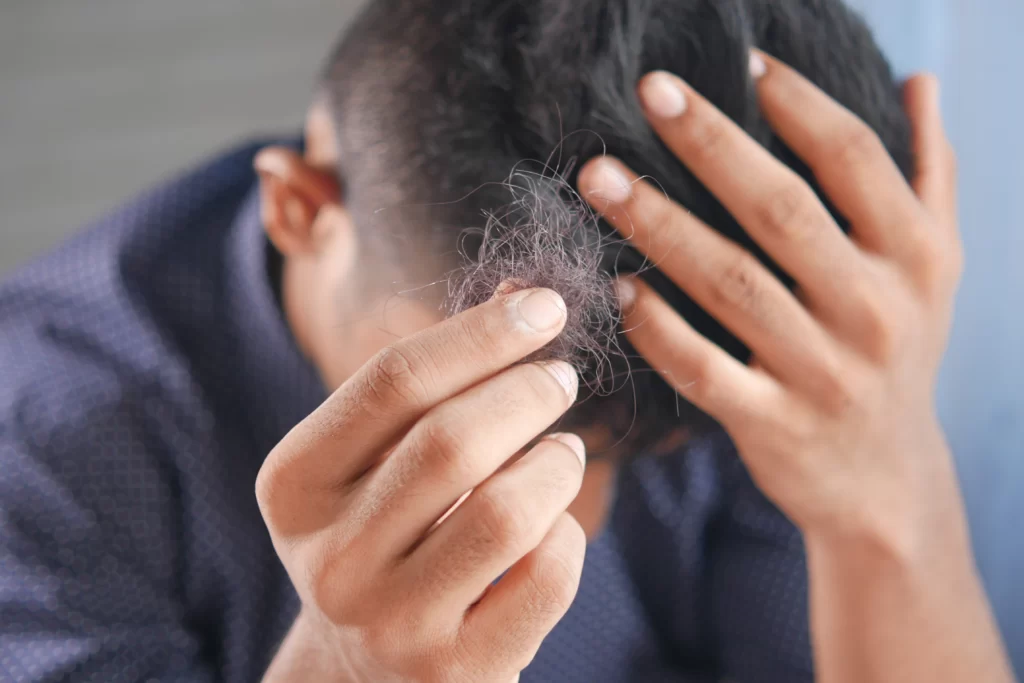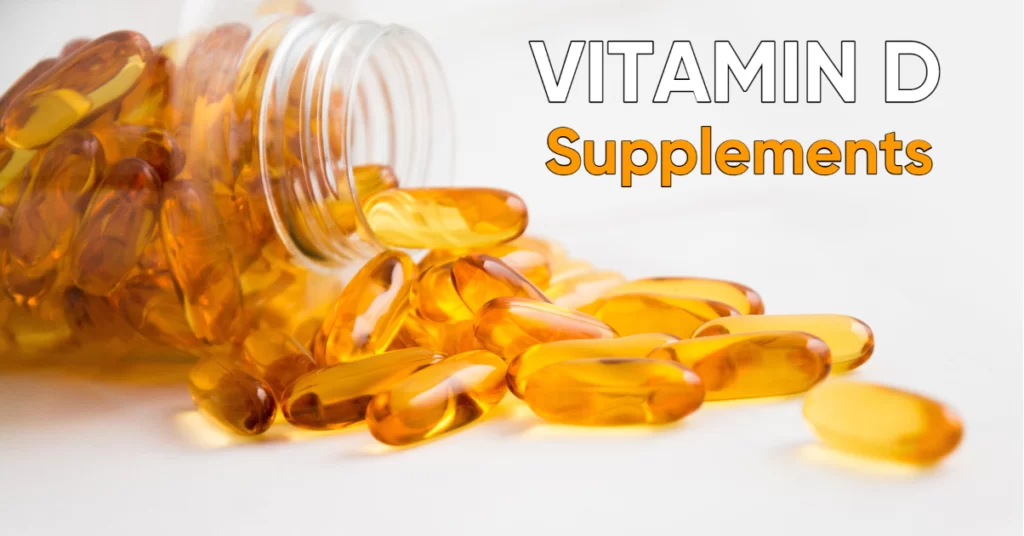Have you felt run down and like you can’t get out of bed? Are you struggling with unexplained hair loss and weight gain? You might be low in vitamin D.
Vitamin D is a mandatory vitamin for overall health and vitality, so if you’re not getting enough, it’s no wonder you’re feeling run down. Keep reading to learn more about vitamin D deficiency symptoms and how to get your levels back up.
What is vitamin D, and what are its benefits

You may have heard that vitamin D is essential, but you might not know precisely what it is or why you need it.
Vitamin D is a group of fat-soluble compounds critical for human health. Unlike other vitamins, our bodies can produce vitamin D on their own, but only when exposed to sunlight.
Once made, vitamin D helps the body absorb calcium and phosphorus, two minerals that are critical for bone health. Vitamin D also supports immune system function, aids in metabolism, and weight optimization is an exceptional ingredient for hair. In addition, it has been linked to a reduced risk of cancer and other chronic diseases.
So, next time you’re basking in the sun, know that you’re not just getting a tan—you’re also giving your body a much-needed boost of vitamin D.
The top signs that you have a vitamin D deficiency
Are you gaining weight even though you’re eating right and exercising regularly? Do you have unexplained hair loss? These could be signs that you have a vitamin D deficiency. Vitamin D is an essential nutrient that helps the body absorb calcium and phosphorus, two minerals that are critical for bone health. Deficiency of vitamin D can lead to bone loss, osteoporosis, and fractures. Vitamin D deficiency is also linked to other health problems like heart disease, cancer, diabetes, and depression.
How vitamin D deficiency can trigger hair loss and weight gain

Vitamin D isn’t just for keeping your bones healthy and strong- did you know it also plays a vital role in maintaining a healthy head of hair? That’s right, vitamin D is essential for hair growth, and a deficiency can lead to thinning hair and even hair loss.
When the body lacks vitamin D, keratinocytes struggle to regulate hair growth and shedding, leading to hair loss.
But that’s not all. Vitamin D also helps to regulate the metabolism, and a lack can lead to weight gain by causing depression, bone loss, and fatigue.
So if you’re noticing your hair is a little lackluster, and you can’t seem to lose those extra pounds, it might be time to check your vitamin D levels.
A simple blood test can tell you if you’re deficient, and supplements can help to get your levels back up to where they should be.
So don’t wait- if you’re experiencing hair loss or unexplained weight gain, talk to your doctor about getting your vitamin D levels checked. It could be the key to regaining your health and feeling your best.
How to get more vitamin D in your diet

Here are a few exceptional ways to get more vitamin D in your diet:
- Enjoy a glass of fortified orange juice with breakfast (see recipe : Magic Juice To Control Hair fall & Fast Hair Growth)
- Add a side of sautéed mushrooms to your lunchtime sandwich or salad.
- Snack on roasted almonds or sunflower seeds as an afternoon pick-me-up.
- Sip on a cup of hot chocolate made with vitamin D-fortified milk before bed.
So there you have it! Adding a few extra items to your diet can quickly get the vitamin D your body needs to function at its best.
Supplementing with vitamin D if you’re deficient

Unfortunately, vitamin D deficiency is surprisingly common, especially among people who don’t get much sun exposure.
The fantastic news is that vitamin D supplements can help to correct a deficiency. Vitamin D comes in two primary forms: vitamin D2 and vitamin D3.
Vitamin D3 is the more potent form, and it’s the form found in most supplements. Vitamin D3 supplements are available in both capsules and liquids.
The recommended dose depends on a person’s age and vitamin D levels, so it’s essential to speak to a doctor before supplementation.
In most cases, however, just a little sun exposure daily is enough to keep vitamin D levels healthy.
The risks associated with taking too much vitamin D
We all know that vitamins are essential for our health. But do you know that taking too much of one particular vitamin can be harmful? That’s right, too much of a good thing can sometimes be dangerous. And that’s the case with vitamin D.
So what happens if you take too much vitamin D? Well, the most common symptom is hypercalcemia, when calcium levels in the blood become elevated.
This can lead to problems such as kidney stones, weakness, and fatigue. In extreme cases, it can even lead to coma or death.
So while vitamin D is essential for our health, it must be taken in moderation.
References
Chauhan, K., Mahsa Shahrokhi, & Huecker, M. R. (2022, July 5). Vitamin D. Nih.gov; StatPearls Publishing. https://www.ncbi.nlm.nih.gov/books/NBK441912/
Nair, R., & Maseeh, A. (2012). Vitamin D: The “sunshine” vitamin. Journal of Pharmacology & Pharmacotherapeutics, 3(2), 118–126. https://doi.org/10.4103/0976-500X.95506
Charoenngam, N., & Holick, M. F. (2020). Immunologic Effects of Vitamin D on Human Health and Disease. Nutrients, 12(7), 2097. https://doi.org/10.3390/nu12072097





5 comments
Nice article! Can you please suggest some good vitamin D supplements which are available on India?
Wow! Thanks for informative information will purchase this capsule.❤️